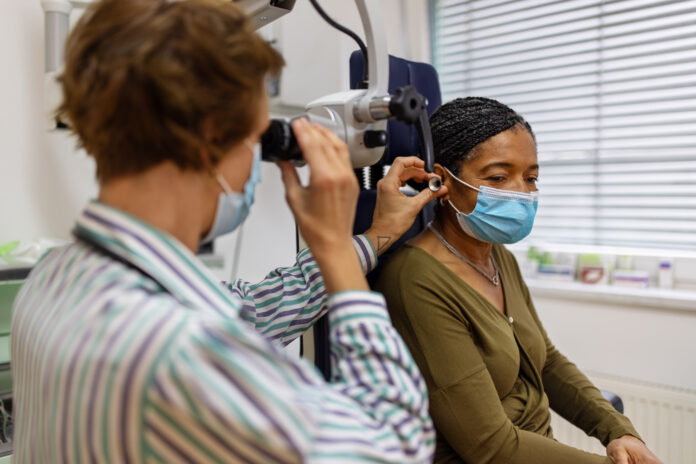B.C.’s remedy for bringing more foreign-trained doctors into the medical profession has been delayed, sidelining potential candidates and prolonging pressure on the province’s health system, advocates say.
The Institute for Canadian Citizenship, which helps newcomers and people seeking citizenship, estimates there are thousands of foreign-trained doctors whose qualifications have allowed them to be fast-tracked to Canadian citizenship, but provincial regulators refuse to recognize their credentials.
The College of Physicians and Surgeons of British Columbia proposed the new role of associate physician in April 2020 to address the province’s health-care needs, allowing doctors who weren’t eligible for a full licence to work under physician supervision.
It said the plan would help address the doctor shortage, utilize the expertise of internationally trained physicians and provide more people with medical care.
Shortage of family doctors prompts awareness campaign – Feb 28, 2022
But no doctor has yet received the title and the college says the pandemic is behind the delay because of the way it affected surgeries.
“This program was set to launch at the start of the pandemic, but most of the targeted areas were within the surgical disciplines and COVID sort of wiped out much of the surgical capacity, so we haven’t licensed any yet,” said Dr. Heidi Oetter, the registrar at the college.
“Once we can get the program up and running, I would think that we should be seeing dozens of them entering the health-care system in British Columbia.”
Related Videos
Living with COVID-19 means being vigilant, Saskatchewan researcher says
Masks no longer mandatory in Quebec classrooms
For some, Saskatchewan’s removal of vaccine, mask mandates cause for celebration
Dropping Sask. COVID-19 isolation requirement erodes accountability: USask expert
Nearly 100% of surgeries postponed in early pandemic complete: B.C. health minister
Saskatchewan reports 1,407 COVID-19 cases, 372 in hospital Wednesday
COVID-19: HKPR region’s top doctor urges caution ahead of more relaxed measures
Alberta health minister announces measures to increase access to pediatric COVID-19 vaccines
Travel agents, airline industry officials react to new federal travel measures
COVID-19: Alberta’s top doctor says province is in transition
Dr. Harry Tabrizi, an ear, nose and throat surgeon who practised medicine for more than a decade in Iran before immigrating to Canada in 2012, works as a hearing instrument practitioner in Surrey. Despite his efforts to become accredited, he said he hadn’t heard of the associate physician role.
Trending Stories
Prince William faces fury over ‘racist’ Ukraine war comments
Grimes accidentally reveals birth of 2nd child with Elon Musk
“Since my immigration, I have been struggling and wanting to work in health care, and we have a doctor shortage. With an advanced western country, with such a great history and system in place, I’m not sure what is preventing me from helping people,” he said. “I’m not familiar with the classification of associate physician but I’d like to get more information about how I can apply.”
Read more:
Proposed B.C. change could put foreign-trained doctors to work during coronavirus pandemic
Doctors of B.C. president Dr. Ramneek Dosanjh agrees the role could help fill gaps and address the doctor shortage, but said when a new position is added, a defined scope of practice is essential to minimize confusion about roles and ensure quality of care.
The Health Ministry said the associate physician classification is one piece of its plan. It has also expanded the scope of practice for nurse practitioners and increased funding to train more of them to address doctor shortages, it said in a statement.
“As this is a brand new classification, establishing associate physicians in B.C. requires considerable planning with partners to ensure appropriate and safe integration into health authorities,” it said.
Victoria health clinic shutting down, blames doctor shortage – Jan 17, 2022
The college said health authorities are working to establish programs, but until that happens, it is unsure how many associate physician positions will be granted.
Dr. Vahid Nilforushan, an anesthesiologist who practised in Iran for 13 years before immigrating to Vancouver in 2010, said he is skeptical about the role being a viable solution for doctors like him.
“It might help with health care in B.C., but it seems very unlikely that many (international medical graduates) will get positions,” he said. “We also still want to work as physicians, but we’d rather work as associate physicians than driving taxis and working retail.”
To practise medicine in Canada, doctors must have a recognized medical degree and pass qualifying exams. Canadians and permanent residents who attended an international medical school have been lobbying provincial governments to change the requirements that prevent the majority of them from getting residencies, the training positions required before they can work independently.
The Canadian Resident Matching Service’s 2021 report shows 325 international medical graduates were matched for a residency out of a total of 3,365 matches.
“Even if they’ve passed all their exams and are technically certified, they need a residency and the biggest barrier is that provinces don’t make those spots available to foreign-trained physicians,” said Daniel Bernhard, CEO of the Institute for Canadian Citizenship. “It’s just completely stacked against them.”
In May 2021, the institute launched a campaign with the hashtag #EqualChance, calling for a universal standard for doctors.
“The biggest insult is to the patients and the public, and the physicians who are excluded will be the first ones to tell you that,” Bernhard said. “This health-care shortage that everybody is fixated on is not real. The qualified labour is here.”
© 2022 The Canadian Press



